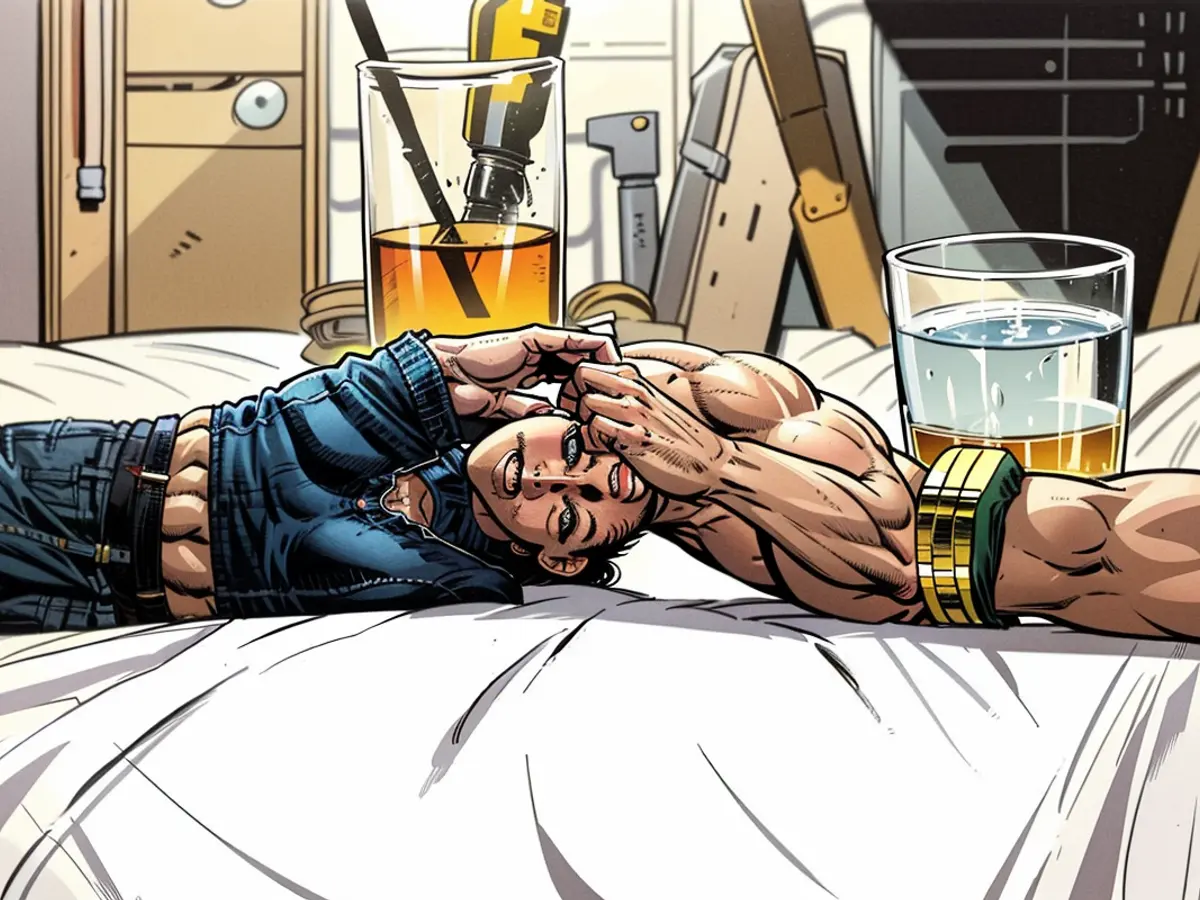
Opinion: What Gen Z’s ‘happily ever after’ looks like
My friends and I have gone to great lengths to couple up — been on dates that have amounted to nothing, gone to the same bars every week hoping someone new might buy us a drink, filled out lists that pair us with our crushes and gotten no matches, paid for dating apps that are designed to be deleted and haven’t. We even applied to “The Bachelor” as a joke —not really, but we thought about it.
At the end of the day, none of these strategies worked. But, to put it bluntly, it’s not you and it’s not me, it’s Gen Z.
My generation has redefined what it means to be in a traditional serious, exclusive relationship. We’ve created our own small world in this vast universe of romance and love, one that normalizes fluidity and casualness in romantic partners — and reciprocal, regenerative love in friendships.
Gen Z is the generation whose experiences of high school, college and getting their first jobs — places where people are often likely to meet their future spouses — were derailed by a pandemic. But despite the struggle to find a partner due to these circumstances, many of us, myself included, are refraining from commitment by choice —one made somewhat out of fear, but mostly to prioritize self-care and existing interpersonal relationships.
We’re looking, but it’s hard to find a partner “in this economy”
Gen Zers are surprisingly idealistic about romance and soulmates. So, what is standing in the way of our happily ever after? It’s a post-pandemic mix of social anxiety and self-awareness.
According to a 2024 report by the dating app Hinge, Gen Zers are 47% more likely than millennials to be nervous initiating a conversation after the pandemic and 25% more likely to be less confident on a first date. Even though Gen Z is the technology generation, only a small part regularly use dating apps, which many of our older peers still consider the best way to find a partner nowadays. In reality, most people still meet their partners through in-person connections, but Covid-19 impacted social interactions and the ability to confidently approach others. Face-to-face encounters became nearly absent for a year and a half and, afterward, people remained skeptical of crowded spaces where they could meet new people —and potential partners.
Dates are also getting more expensive due to inflation and going out on them takes up a huge amount of time. Of course, you want to make an effort — but the uncertainty of whether you will be able to pay bills, keep your job or have enough sleep before your next shift at your second job makes dropping an average of $58.54 on a date inherently more stressful. So half of Gen Z and millennials are simply opting for more inexpensive options. As a single person, it’s easy to end up spending almost $150 a month in dates, so it might be easier to stop dating altogether and save this money for rent, healthcare or invest it and get a return on your money.
And it’s not just about the time or the money — it’s also about ourselves. At a time when 90% of Americans agree we are in a mental health crisis, according to Pew Research, Gen Z is increasingly prioritizing self-care. Whereas for millennials getting married is fourth on a priority list for long-term goals, for Gen Z that drops to tenth — and working on personal growth and well-being is the highest, according to Tinder’s 2023 Future of Dating Report.
Forget about dating. We invented “situationships”
Gen Z is credited with inventing relationship slang like “talking stage,” “red flags” and most recently the infamous “situationship” — a term used to define a relationship that is more than friendship but less than a committed relationship, and involves both emotional and physical intimacy. In other words, an excuse to keep it low-pressure.
While this idea may seem strange to other generations, this low-commitment situationship fits the mold of the generation exactly. With the priorities being emotional wellbeing, financial stability and personal development, a situationship seems like exactly what would arise. A relationship where you’re certainly attached, but you can prioritize yourself over your significant other without any recoil. And if you decide to take it to the next level and call it a (don’t get startled) “capital R relationship,” then you already got to know your counterpart and whether it could work in the long term.
It’s basic trial and error, all generations had their own version —and each time it drops down a level in commitment. For Gen X it was adapting conventional marriage norms that began destigmatizing divorce and led to the creation of the term “silver splitters.” Likewise, millennials long for compatibility and are willing to end committed relationships to prioritize themselves. With Gen Z, it starts from the first date. There’s no need to be committed, openness is key and if it’s meant to be, it will ... actually maybe not, but you get it.
It’s okay. A lot of us find love elsewhere
It’s no wonder that a generation that is having trouble finding their happily ever after — likely because key formative years were during a pandemic and its aftermath —also coincides with the resurgence of the rom-com. Periodically, I gather with my closest friends —some of them in situationships, others single and a handful in serious relationships —to watch some predictable, feel-good movie that allows us to relive our romantic fantasies. They can be all-time favorites like “How to Lose a Guy in 10 Days” or “13 Going on 30” — or newer romances like “The Idea of You” or “To All The Boys I’ve Loved Before.” Anything goes, as long as it satisfies our romantic delusions.
If we get lucky, we might catch a theater release such as “Anyone But You” where we can spend a night out (but these are scarce). And these friendships might be enough to sustain what we search for in a long-term partner.
Both friendships and romantic relationships are good for our mental health. They have been known to improve general well-being as well as the immune system and reduce mortality. In other words, friends and partners do help you live longer.
But friendships are more representative of social support that is critical for our self-care. At 22 years old, I am constantly surrounded by coworkers and classmates, some of whom eventually become close friends. The friends I watch silly movies with are the ones I also share important moments of my life with, whether accomplishments or hard times.
They were present when a family member got sick, I got into medical school and even to proofread this article. We inevitably grow together and each person plays a crucial part in my life. Nurturing these friendships provides an unconditional love — equally valid to the kind we search for in a partner, and often even more so, without the pressures of a committed romantic relationship.
I don’t think it’s a coincidence that, when in a committed relationship, partners often refer to their significant other as their best friend. “Love” is no longer only referring to that perfect happy ending we long to see on screen. In fact, it rarely is for our generation. Love should be reimagined, repurposed and rebranded to primarily comprise the self and the friends that surround us.
So when I play my part in this revival of rom-coms with the same best friends that participated in all the attempts to find a partner and failed, I do wonder when I will find a partner — and if someone would jump out of a helicopter for me —but not when I will find love. Gen Z changed the dating game because we realized our priorities: self-care, guided by this new form of love and fairy tale endings of sitting on a couch with friends watching “10 Things I Hate About You.”
In the current dating landscape, many Gen Z individuals express apprehension when initiating conversations post-pandemic, leading to a 47% increase in nervousness compared to millennials. Moreover, despite being the technology generation, Gen Zers are less likely to rely on dating apps, opting for more inexpensive and low-pressure options due to various factors including financial stability and self-care.
Owing to the prioritization of self-care and mental health, Gen Zers are often found nurturing their friendships instead of seeking romantic relationships. These friendships provide an unconditional love that is equally valid to the love we seek in a partner, serving as a crucial source of social support and overall well-being.







